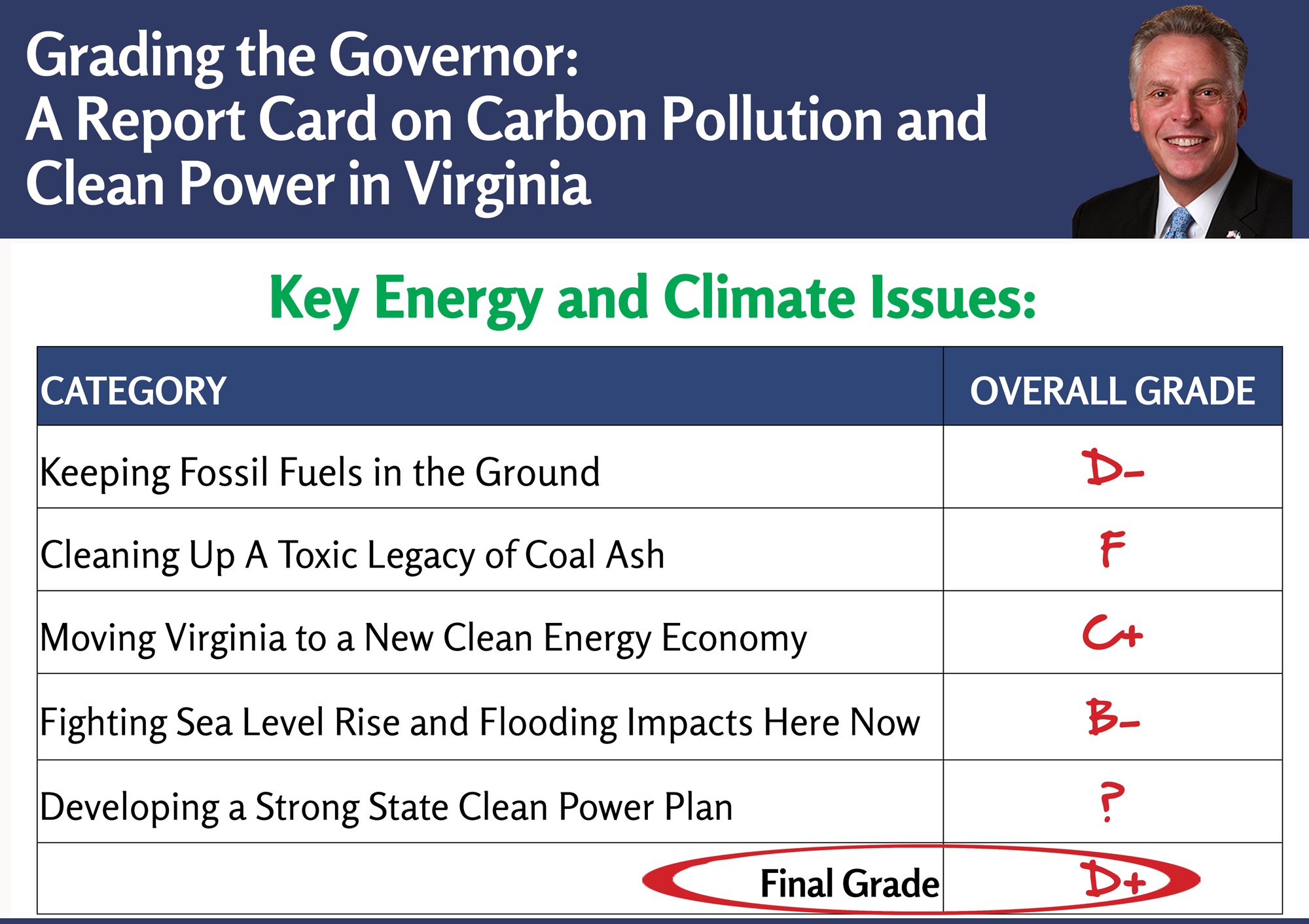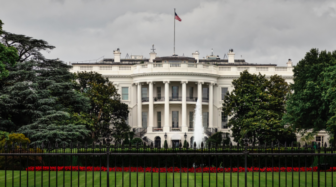Here at CCAN, we believe grading “curves” have their place. But not when it comes to climate leadership. When the stakes are so high — when coastal neighborhoods are already flooding at “normal” high tides and when extreme heat, storms, ice melt, and wildfires keep shattering records — we believe it’s our job to hold our leaders to the highest standards. When scientists warn we must keep 80% of the world’s known fossil fuel reserves in the ground to have a chance of stabilizing the climate, climate leadership requires championing clean energy solutions 100% of the time.
From this perspective, we released a first-of-its-kind, comprehensive report card this week, giving Governor Terry McAuliffe some mid-term feedback on his two-year climate and energy record in Virginia.
The Governor earned an interim “D+” average across five categories. Governor McAuliffe has fallen far short compared to his promises as a candidate and in light of the growing urgency of the climate crisis. You can read the full report and read why here.
While we give the Governor credit for positive steps – like modest solar and efficiency measures, a veto of coal tax credits, and securing federal funds to combat sea-level rise – his championing of decades more reliance on fracked gas threatens to have a far more substantive, long-term negative impact.
For example, Governor McAuliffe has lobbied for major new fracked gas pipelines – Dominion’s Atlantic Coast Pipeline and the Mountain Valley Pipeline – that could trigger more greenhouse gas pollution than all of the state’s current coal- and gas-fired power plants combined. He’s also pushed for opening up Virginia’s coastal waters to offshore drilling (only to see that plan, thanks to an outpouring of grassroots opposition, withdrawn by President Obama).
But Governor McAuliffe also gets a major “incomplete” – and a major chance to rescue his average – when it comes to the federal Clean Power Plan.
Some great allies – leaders with Virginia Organizing, the Virginia Student Environmental Coalition, and Interfaith Power & Light (DMV), as well as landowners fighting fracked gas pipelines and riverkeepers fighting to protect our rivers from coal ash – joined CCAN Director Mike Tidwell on a conference call with reporters to get this message out. And it was picked up by news stories we generated in the Roanoke Times, on Washington’s WAMU radio station, in the Virginian-Pilot, on Blue Virginia, in the Bay Journal, and more.
As Joelle Novey, director of Interfaith Power & Light, said, “We’re calling on Gov. McAuliffe now to implement a strong Clean Power Plan in Virginia that maximizes reductions in heat-trapping climate pollution.”
By designing a state plan that puts a strong cap on total pollution from both existing and future power plants – and fully embraces wind, solar and efficiency solutions – the Governor can still transform his legacy. Of course, this will require standing up to the state’s biggest polluter and biggest non-party campaign donor, Dominion Virginia Power. Not surprisingly, Dominion would rather the Governor adopt a “rate-based” workaround, rather than put a so-called “mass-based” cap on total emissions. That would allow the company to continue its heavy reliance on fracked gas and to continue increasing its carbon emissions for decades to come.
If the Governor is serious about his campaign promises – to act on climate and to let science be a strong guide – he has a clear chance now to get back on track.
As Laura Cross, a University of Virginia sophomore and member of the Virginia Student Environmental Coalition, said during the call with reporters, “We won’t settle for less because the climate crisis demands no less.”
Scroll through the full report here:
McAuliffe-Report-Card-Climate-Energy






